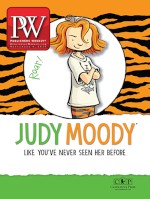Robert Sindelar took over as the president of the American Booksellers Association in June. A bookseller for nearly 30 years, he is currently managing partner at Seattle’s Third Place Books. Two months into his role as ABA president, Sindelar said his top priority is to streamline communication with the ABA’s membership. “Everything begins and ends with communication,” he said. “I think we can do a better job of letting all the members know what the resources are that we have available to them, what the opportunities are, and knowing what we can do that’s to the best advantage of their store.”
Some stores, Sindelar noted, don’t have the time or resources to take advantage of what the ABA has to offer. “Smaller stores might not be able to spare a staff member to go to Winter Institute or commit time to a webinar or filling in a survey,” he said. “That is something we’re trying to rectify—how to spread around the education, the opportunities, to all our members.”
Sindelar cites some positive steps in this direction, including a new program launched in June by Penguin Random House that pays for a year of Above the Treeline’s Edelweiss+Analytics Lite tool for new users. “This is particularly helpful to smaller booksellers, who may not be able to afford it on their own,” Sindelar said.
Maintaining open communications between the ABA and publishers is key to the success of both parties. “Publishers are interested in making sure the indie sales channel and physical sales channel are stable, if not growing,” Sindelar said. “They know how important it is for discoverability and sales. But, for the relationship to work, we need to work with them on continuously re-examining the business models we have in place. It can’t be sitting back and doing business as usual.”
Sindelar praises the aggressive backlist discount programs started by Hachette Book Group and HarperCollins in recent years—one outcome of the ongoing dialogue between the organization and publishers. “Let’s face it: the extra discount on backlist helps keep those books on store shelves in a way they wouldn’t be if it was not there,” he said.
Education about these backlist promotion programs will be part of the programming package that ABA is bringing to the forthcoming regional bookseller trade shows, as will programming on diversity, a topic that has been front and center all year for the organization (for more on the regional shows, see p. 28).
“The ABA is trying to talk about diversity more openly, and we are trying a combination of several things,” Sindelar said. “We started the Diversity Task Force, which met for the first time at BookExpo, and we are making sure that we are offering scholarships to bring in new faces to our events.” Circling back to business, he noted that “it is often in the most culturally diverse communities where you see the most experimentation and nontraditional bookselling practices. We need to explore those business models, and this is a way to get new eyes on the challenges of bookselling.”
One area where Sindelar readily admits independent bookstores are falling behind is online sales. “It’s really our Achilles’ heel as an industry,” he said. “All our stores do some online business, but there is a lot of potential” for more. Specifically, he’d like to see independent booksellers take some of the prepublication sales business away from Amazon. “Customers tend to think of bookstores as a place to go to only once the book is out, but we need that to change.”
Being in the Seattle area, where Third Place Books operates three locations, Sindelar has had a front-row seat to watch Amazon’s evolution. “Seattle has so many Amazon employees now that it’s basically a company town,” he said. “And it’s weird: their employees shop at my stores, so it means we are actually benefiting from Amazon.”
Still, the ABA has long kept a wary eye on Amazon, and that is not about to change. Sindelar hopes that Amazon’s Whole Foods acquisition will bring further scrutiny and, thus, more allies into the fight against what many view as a monopolistic enterprise.
As competitive as Amazon is with the indies, Sindelar said that independent bookstores do not see themselves as being in Amazon’s shadow, or in that of Barnes & Noble, for that matter. ”What we do is completely different from what they do, both online and in their physical stores,” he said. “The challenge is to communicate this in such a way that it wins back customers.”
Sindelar noted that, broadly speaking, there are two kinds of shoppers: the ones who shop locally and know and care where their money goes, and the ones who don’t. “When I meet the ones who don’t shop locally, they often say, ‘Oh, I didn’t know you were around any more,’ ” he said. “We need the owners of indie stores to show they are there, that they are connected to their communities, and how shopping in an independent bookstore is new and exciting. They need to show those people who don’t shop in independent stores that they are missing something important from their lives.”



 Volume 264
Issue 36
09/04/2017
Volume 264
Issue 36
09/04/2017





